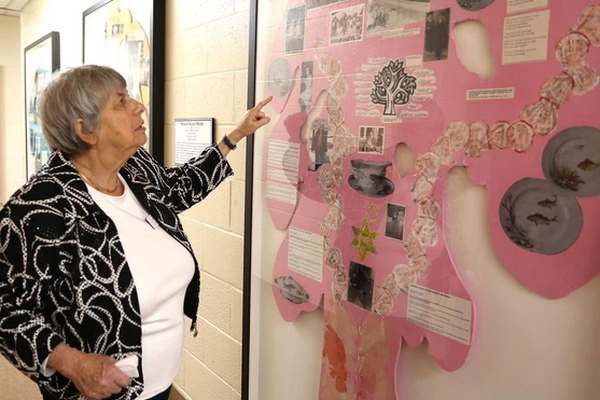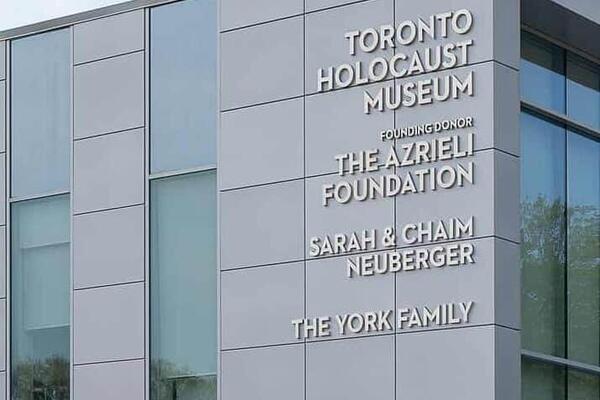This resource page has been curated with the assistance of experts in Holocaust education, including Leora Tarshish, Rabbi Erin Polansky and Yos Tarshish, ensuring accurate and sensitive material.
International Holocaust Remembrance Day, observed annually on the 27th of January, marks the liberation of Auschwitz-Birkenau, the largest Nazi death camp, in 1945. This day is dedicated to honouring and remembering all victims of the Holocaust, a period marked by the systematic, industrialised, state-sponsored persecution and annihilation of six million Jews, alongside millions of others, under the brutal Nazi regime. While the Jewish community was the primary target of the genocide, known as the Final Solution, other groups also suffered immensely under Nazi tyranny. This includes the Roma and Sinti, who, like the Jews, were subjected to systematic extermination. Additionally, the Holocaust saw the targeted persecution of queer people, Afro-Germans, Polish resistance fighters, people who were disabled, and other minority groups. Each of these communities faced horrific atrocities, and their suffering is an integral part of the Holocaust narrative.
The commemoration of International Holocaust Remembrance Day is a sombre reminder of the consequences of prejudice, racism, and hatred. It is not only a day to reflect on the past but also to educate and raise awareness about the dangers of intolerance and discrimination. In remembering all the victims of the Holocaust, we acknowledge the diverse and multifaceted nature of the suffering endured during this dark chapter of history. It's a call to remember the varied faces of those who suffered, not just as groups, but as individuals, each with their own story, each a victim of an ideology that sought to erase their existence.
Educators play a pivotal role in this mission of remembrance and education. On International Holocaust Remembrance Day, and indeed throughout the year, teachers have the responsibility and the opportunity to engage students in meaningful discussions about the Holocaust. By introducing age-appropriate literature, survivor testimonies, historical facts, and ethical discussions, educators can guide students in understanding the magnitude of the Holocaust, its causes, and its consequences. This understanding is essential not only for remembering the past but also for shaping a future where respect, dignity, and tolerance are paramount. The resources provided on this page are designed to assist educators in this vital task, offering a range of materials and ideas to suit various educational settings and age groups.
Furthermore, International Holocaust Remembrance Day presents an important opportunity to address contemporary antisemitism with older students. In today’s world, it is a sad reality that antisemitism has not been relegated to history but continues to manifest in various forms globally. Educators are encouraged to use this day as a springboard for discussions about modern antisemitism, drawing parallels between historical events and present-day incidents. By examining current events, social media trends, and recent hate crimes, students can gain a deeper understanding of how antisemitic ideologies and prejudices still persist and the impact they have on Jewish communities today.
Such discussions are crucial in preventing the false impression that antisemitism is a relic of the past. They serve to enlighten students on the ongoing struggles against hate and prejudice and the importance of being vigilant and proactive in combating these issues. Educators can foster an environment where students learn to recognize and challenge antisemitic rhetoric and actions, promoting a culture of understanding, empathy, and active citizenship. Engaging with contemporary issues also provides a tangible context for students, helping them connect historical lessons with the world they live in, thereby reinforcing the relevance and urgency of learning from the past to create a more inclusive and respectful future.
Places to visit in Canada
L’Dor V’Dor: From Generation to Generation
This exhibit details the stories of survivors who made their lives in Kingston after the War. Located at Beth Israel Congregation in Kingston, Ontario.
Toronto Holocaust Museum
The Toronto Holocaust Museum inspires visitors to think deeply about the tragedies of the Holocaust and make connections between this history, world events, and contemporary Canadian life.
Classroom Activities and Ideas
- Moment of Silence and Reflection: Start the day with a moment of silence to honour the victims of the Holocaust.
- Holocaust Survivor Testimonies: Use video or audio recordings of Holocaust survivors sharing their experiences. This brings a personal and powerful perspective to history.
- Literature and Book Discussions: Select books related to the Holocaust for reading and discussion. Include both factual accounts and appropriate fiction to cater to different age groups.
- Holocaust Memorial Art Projects: Encourage students to express their understanding and emotions about the Holocaust through art, be it through drawing, painting, sculpture, or digital media.
- Critical Discussions on Propaganda and Media: Analyse Nazi propaganda and discuss the role of media in spreading hate, drawing parallels with contemporary issues.
- Interactive Workshops on Tolerance and Diversity: Host workshops that promote understanding, tolerance, and diversity, using the Holocaust as a historical example of the dangers of bigotry and hatred.
Curriculum Connections
- History and Social Studies: The Holocaust as a crucial part of World War II and its implications on global history.
- Ethics and Philosophy: Discussions on human rights, ethics, and the moral lessons learned from the Holocaust.
- Literature: Analysis of Holocaust literature, diaries, and memoirs.
- Art and Media Studies: Study of Holocaust representations in art and media, and the ethical considerations therein.
- World Religions: Explore the sociological and theological impacts of the Holocaust on world religions.
Antisemitism Educational Resources
Holocaust
- United States Holocaust Memorial Museum Resources: Offers extensive educational materials, including lesson plans and historical data.
- The Tattooed Torah from IWitness: A Children’s story narrated by Ed Asner, detailing a child’s experience during the Shoah, specifically relating to how the Nazis stole Jewish artifacts. Includes a curriculum for classroom use.
- Yad Vashem's Educational Resources: The World Holocaust Remembrance Center provides a variety of teaching tools, including survivor testimonies and historical documents.
- Anne Frank House Educational Materials: Focuses on Anne Frank's diary and story as a way to teach about the Holocaust.
- Holocaust Educational Trust (UK): Offers a range of resources, including survivor testimonies and teaching guides.
- The Holocaust Memorial Day Trust (UK): Each year they focus on a different theme - the 2024 theme is The Fragility of Freedom (PDF 753 KB)
- USC Shoah Foundation: The USC Shoah Foundation creates visual histories and education resources
- Art From The Holocaust | Yad Vashem: An online exhibit of art work created by artists between 1939 and 1945 that represents a living testimony from the Holocaust.

